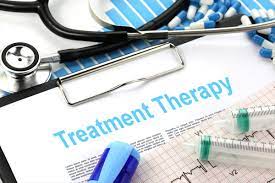Are you looking for the best OCD treatment near me? If so, you’ve come to the right place. In this blog post, we will discuss the different treatment options available for OCD and how to find the best one for you. We will also provide a list of therapists who specialize in treating OCD. So don’t wait any longer – read on to find out more!
Contents
What Is OCD?
Obsessive-compulsive disorder (OCD) is an anxiety disorder characterized by intrusive, unwanted thoughts and repetitive behaviors that can interfere with daily life. People living with OCD are often preoccupied with worries about contamination or safety and may engage in rituals like counting, checking, or cleaning to try and relieve their anxiety. Here are some more symptoms of this condition:
- Intense fear of contamination or dirt.
- Checking objects multiple times to make sure they are safe.
- Compulsive counting, ordering, or arranging of objects.
- Having intrusive thoughts that can be disturbing or upsetting.
- Excessive handwashing, showering, or cleaning.
Does OCD Go Away?
OCD is not curable, but it is possible to manage the symptoms. Treatment options for OCD can vary from person to person, and the success of treatment depends on the severity of the disorder and the type of therapy used. Commonly prescribed treatments for OCD include cognitive-behavioral therapy (CBT), medication, and behavioral therapy.
Benefits Of Choosing An OCD Treatment Near Me

Check these reasons that make it a good idea to choose near me OCD treatment:
- Convenience: Being able to access treatment close to home makes it easier for people with OCD to stick to their treatment plan, as they don’t have to travel far or take time off work.
- Tailored Treatment: A local therapist is more likely to be familiar with the cultural and social influences that may affect someone’s OCD symptoms and can tailor the treatment accordingly.
- Accessibility: Seeing a therapist close by means there are fewer barriers preventing people from getting the help they need, such as cost or lack of transportation options.
- Feeling Of Support: Having a qualified professional nearby can provide an extra layer of security and support, allowing people to feel comfortable discussing their OCD.
How To Find The Best OCD Treatment Near Me?

Here are a few tips on how to find the best OCD treatment near me:
- Ask For Referrals: Talk to your family doctor, psychiatrist, or trusted mental health professional for referrals to local therapists who specialize in treating OCD.
- Make Sure They’re Credentialed: It’s important to look that the therapist you consider is qualified and licensed by relevant authorities in the state where they practice.
- Experienced In Treatment: Check the therapist’s experience in treating OCD and make sure they have a good track record of success.
- Conduct Research Online: Check websites and online directories of mental health professionals for listings of therapists and clinics that offer OCD services in your area. Look up reviews from previous clients to get an idea of which practitioners have a good track record of helping people with their OCD symptoms.
- Treatment Method: Make sure the therapist you choose uses evidence-based treatment methods like cognitive-behavioral therapy (CBT) or exposure and response prevention (ERP).
- Consider Insurance Coverage: Mental health services can be expensive, so it’s important to check with your insurance provider if they cover any or all of the cost. Check if the therapist takes your health insurance, if not find out what their fee structure is so you can plan accordingly.
- Make An Appointment: Once you’ve identified a potential therapist, make an appointment or contact them for a consultation to discuss your needs and determine if this is the right fit for you.
Treatments Used By The Therapist

Now, let’s take a look at some of the treatment methods commonly used by therapists in OCD treatment:
Cognitive Behavioral Therapy
CBT is a type of therapy that helps people change their thoughts, feelings, and behaviors in order to cope with anxiety. It focuses on identifying and challenging unhealthy thought patterns that can lead to compulsions and rituals.
Exposure And Response Prevention
ERP involves gradually exposing a person to the situations or objects they fear while teaching them techniques to reduce their anxiety. This can help them eventually gain control over their OCD symptoms.
DBT Or Talk Therapy
Dialectical behavior therapy (DBT) is a type of talk therapy that combines cognitive behavioral techniques with mindfulness practices. It can help people understand and regulate their emotions, and learn healthier ways to respond to stressors.
Medication
In some cases, medications like selective serotonin reuptake inhibitors (SSRIs) or anti-anxiety drugs may be prescribed in combination with talk therapy. These medications can help reduce the symptoms of OCD while the person is working on changing their behaviors through therapy.
Mindfulness Practices
Mindfulness-based practices like meditation, deep breathing, and guided imagery can help people become more aware of their thoughts and feelings in a non-judgmental way. This can give them the tools to confront their OCD symptoms with confidence. It includes learning to accept rather than resist difficult thoughts and feelings.
Group Therapy
Group therapy can be another helpful option for people with OCD. It allows them to discuss their thoughts and feelings in a safe and supportive environment, while also providing resources and support from peers who are going through similar struggles.
Transcranial Magnetic Stimulation
Transcranial magnetic stimulation (TMS) is a relatively new and promising treatment for OCD. It involves the use of magnetic fields to stimulate areas of the brain that are associated with OCD symptoms. This can be effective in reducing symptoms, but it’s important to note that it does not replace traditional forms of therapy or medication.
Can I Treat Myself For OCD?
Although it is not advisable to try and treat OCD on your own, there are some things you can do to help manage the symptoms. Regular exercise, proper nutrition and relaxation techniques such as mindfulness meditation have all been shown to be helpful in managing certain mental health conditions like anxiety and depression, which can also help with managing OCD.
What Kind Of Therapist Is Best For OCD?

The best therapist for treating OCD will be one who is experienced in using evidence-based approaches such as cognitive behavioral therapy (CBT) and exposure and response prevention (ERP). It’s also important that they have a good understanding of the condition and have a positive attitude toward their clients. It’s a good idea to do your research and find out which type of therapist is most suitable for your needs before making any commitments.
How Do I Train My Brain To Stop OCD?
It can take time and effort to retrain your brain to stop OCD behaviors, but it is possible. Start by recognizing your triggers and making a list of them. Then, work on developing coping strategies for when these triggers come up.
This could include relaxation techniques like deep breathing or mindfulness meditation, which can help you manage your anxiety more effectively. Finally, practice challenging any negative thoughts that arise and reframing them in a positive way. This will help you slowly but surely break the cycle of obsessive thinking that often accompanies OCD.
Conclusion
Finding the best OCD treatment near you can be a challenge, but taking the time to research and find the right therapist is worth it in the long run. Make sure they are qualified and experienced in treating OCD and use evidence-based methods like CBT or ERP. Consider asking your family doctor or psychiatrist for referrals and check insurance coverage before making an appointment. Finally, remember that there are also ways to help manage your symptoms yourself such as exercise, proper nutrition, and mindfulness meditation.
Take care, and don’t forget that you are not alone! OCD is a mental health disorder characterized by obsessions and compulsions. If you have any queries regarding OCD treatment, ERP therapy experienced therapists at OCDMantra can help: Book a trial OCD therapy session


